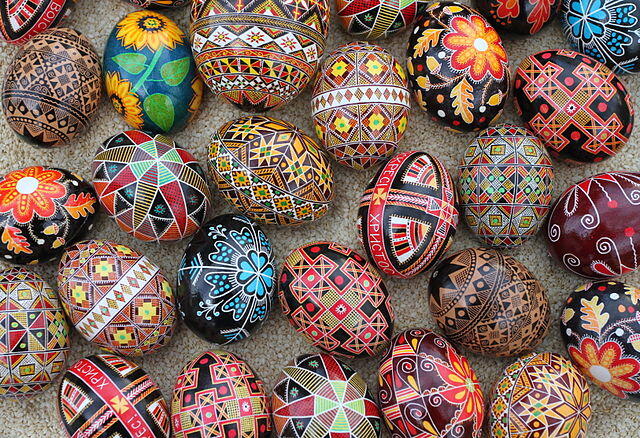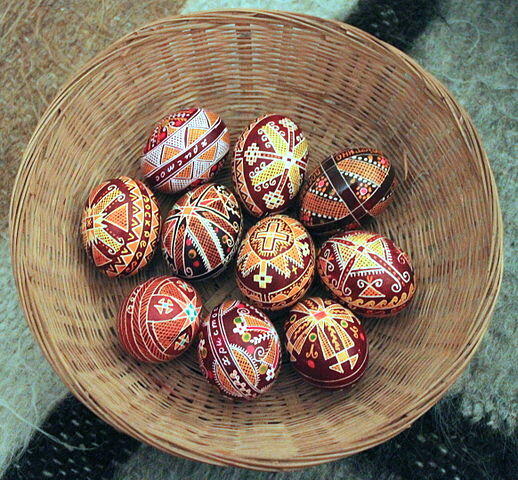I was lucky to grow up in a community that was ethnically (if not racially) diverse. Certain nationalities predominated, and in the cul-de-sac where I lived from the age of two the majority of names ended in “ski” or “wicz.” My father had no idea that he was buying into a Polish outpost; my mother said it reminded her of her old neighborhood. Since my grandmother was the daughter of immigrants from Krakow, it was hardly alien to me.
Aside from the occasional meal of kielbasa and its usual cabbage and potato-based sides—which, to my discredit, I did not greatly enjoy—I was not grounded in any particular ethnicity. I listed very slightly toward England, and the elegance of the Received Pronunciation (as heard on TV) that I mistakenly assumed people actually spoke. I wanted to elevate my speech and make any other personal renovations that might dispel the lingering aroma of golumpki.
I felt no pride of heritage when the name of any country was mentioned. I was embarrassed when, in the seventh grade, we were forced to celebrate our roots and bring our various national dishes for an ethnic potluck. Fortunately, I was able to beg off on Poland since so many others stepped up with their pierogis. Since my mother’s father was from Lancashire (and of Welsh heritage), I made the hard choice of a rarebit. While my cheesy mess languished untouched, I envied the Italians.
Though I have since come to savor the taste of Polish cuisine (when prepared by someone who knows how to cook), I have yet to reach for a hyphen. Some see their nationality as a tribal haven against loneliness; others are fiercely proud to have descended from a line of survivors. But, lacking my own culture, I’ve often looked upon what their heritage entails and considered what they’ve inherited is quite marvelous.
Going through grade school in the western end of North Utica, I was one of the two brightest kids in my class. The other was a lovely girl of Ukrainian descent. She was regal in her bearing and excelled naturally without having to show off; I was more like Quasimodo and struggled to overcompensate for my ungainly slovenliness by being simultaneously clever and obnoxious.
Her parents were refugees from the Soviet regime; she could read Cyrillic and speak Ukrainian. I was given to understand very early on that they were not Russian. Her family had brought their national culture over here with them as a precious artifact, and they cherished it.

One thing that I remember vividly, though it was over fifty years ago, is the day she assisted other members of the local Ukrainian community in demonstrating the process of decorating Easter eggs. These were elaborate creations, worlds away from our usual practice of lazily dipping and dyeing hard-boiled eggs in a solution of food coloring. These first had the innards of the egg removed by poking a pinhole at each end and blowing out the yolk and albumen. Then, intricate patterns would emerge though a process of waxing and coloring the empty egg shells. They were delicate works of art, stunning to behold.
I thought of my grade-school classmate as the Russian president invaded the country her parents had fled. Ukraine, having emerged from decades of Soviet oppression and at last set on a course of democratic self-determination, was under attack by one who sees it his destiny to reassemble the pieces of the former USSR. Thus far the destruction appears to be gratuitous, whatever the rationale. To turn an old phrase on its head, it would seem that certain people like breaking eggs more than they enjoy making actual omelets.
The devastation is so shocking and the resultant human suffering is so heartrending that the invasion has been almost universally decried. Brave Russian citizens have demonstrated against the war, knowing that they may face severe penalties for doing so. An incredibly courageous woman crashed the Russian national news to wave a banner saying “NO WAR.” Whether she emerges to see the light of day again is a matter of grim conjecture.
I have to admit that the feeling occasioned by these events is one of queasy déjà vu. The war images of the past several weeks recalled eerily similar scenes of carnage on March 19, 2003, as the US invaded Iraq—also without just cause. We dropped MOABs on the Cradle of Civilization, and gloated while so doing. What we didn’t destroy was gleefully looted.
There were differences of course. No one was going to lock up Americans who disagreed with the war and throw away they key. But we were derided and dismissed as a “focus group”—as if the right not to be blown to smithereens were a breakfast cereal. And Saddam was not a good guy, but the threat he posed was fictional. The ensuing nineteen years of misery have been all-too real.

If we’re against the current war in Ukraine, we have to reconsider all the wars that we’ve been party to and reflect on whether they were necessary and just. If the conflict in Europe escalates, we may be forced to confront the possibility of fighting a just war with a formidable enemy.
I apologize that this column is not about music. The static was indeed too loud this month; it drowned out all the jazz. Those who feel I’m a despicable member of the opposite camp (whatever that is) are free to abuse me with as much hate mail as they can send. If it makes you feel better it can’t make me feel any worse.
Pray for peace—or, if you don’t pray, try to find peace whatever way you can.
Andy Senior is the Publisher of The Syncopated Times and on occasion he still gets out a Radiola! podcast for our listening pleasure.






















